Editor’s Note: Alexis Karolin is an Honors Tutorial College History Major from Columbus, Ohio, who “learned that even amid a global emergency, I can survive on my own and take care of myself.” She is also pursuing a certificate in Law, Justice and Culture.
By Alexis Karolin
Ohio University junior
This past spring semester, I traveled to Wales, United Kingdom, to study abroad at Swansea University. Growing up, my family hosted several exchange students from Europe, so I have known for a while I wanted a cross-cultural experience to enrich my undergraduate education. This was also the first time I had traveled outside of the U.S. (besides Canada), and I was going alone.
I remember after a tearful goodbye at the airport, I sat on my plane to Toronto panicking, thinking, “Who let me go to a foreign country alone?… I can’t do this!” But eventually, like all international students, I figured it out and found a home in Wales.
At Swansea University, I enrolled in three history courses: The Welsh Century: Politics, Nationality, and Religion (1847-1947), Revolutionary and Napoleonic Europe (1789-1815), and a graduate course, Women and Gender in Medieval Wales (1350-1550). Coursework is different in Wales in that students are expected to conduct research throughout the semester on a chosen topic that pertains to the content of the class, and lectures and seminars help frame the historical period.
For me, I was interested in studying women and gender within modern and Medieval Wales and France. I researched the role of Women in WWII from Wales for The Welsh Century, discussed the efforts for women’s rights in the French Revolution, and explored the Welsh contribution to the medieval literary debate, the Querelle des femmes.
Coursework is also graded differently in the UK: a 100 percent means a student’s performance is the level of a professor, so students rarely score above a 70 percent in any course. This to me was difficult to grasp at first because I was used to the U.S. grading scale where a 70 percent is typically a C.
Beyond the classroom—mine tours, dancing, volunteering
The best academic experience, by far, was when my professor Dr. Johnes took our class to an old coal mine in Wales. Mining had been a large part of the Welsh economy in the 20th century and a vital part of the British Empire. As students, we went 140 meters underground and joined ex-miners for a tour of the mine. They shared their experiences from work as well as the knowledge of Welsh history.
Besides classes, I spent a lot of time dancing or volunteering. I wanted to get to know more people in Swansea and continue my passion for dance, so I joined the Swansea University Dance Society. I participated in weekly contemporary, modern, and commercial classes and was invited to perform in the annual showcase, which helped raise money for SANE, an organization that promotes mental well-being. I really enjoyed being a part of this organization because I met many people of similar interests. I also got the opportunity to see what dance is like in a foreign country and how they put together a show. The technique is very similar, but the routines focus more on movement than tricks. By show week, I was spending all my time in the theater rehearsing — I was exhausted, but I was having the time of my life.
I also joined Discovery Student Volunteering and began working with locals in the Swansea community. This helped me meet more people and become more assimilated into Welsh culture. I spent every Wednesday afternoon working at the community vegetable garden. Several friends and I even spent a couple weeks building a new greenhouse for someone. I remember one week I was weeding, and I accidentally pricked myself on a tingle-touch thorn, and my entire hand went numb for 20 minutes.
On Thursdays, I worked at a community center with adults with disabilities. I met a wonderful woman named Emma who was quite chatty. When we spent time together, I shared stories about life in the United States, and she shared information about Welsh culture. I also befriended a young man named Josh, who shared my love for Marvel movies. We constantly debated which Avenger was the best and played several rounds of Kahoot with each other.
One of my favourite projects was “Unity in Diversity,” where I spent my Thursday evenings at a local church with refugees who were seeking asylum. My role as a volunteer was simply to interact with the refugees and help them practice their English. I was extremely nervous for this project because I felt their life experiences were far from what I could relate to, but I quickly found that despite cultural differences and different backgrounds, I quickly became comfortable. Many mothers enjoyed showing me pictures of their kids and sharing their cultural cuisines. I was also quickly inducted into a group of men from Sudan who taught me how to play dominoes, and by my third week, I won a game!
Life as a student in the UK was different from what I was used to in the U.S. I lived in a student housing facility, but I did not have a roommate (which I thoroughly came to enjoy). Additionally, my bedroom had its own en suite. There were not any dining halls, so I had to learn how to cook on my own. I taught myself how to make many pasta dishes (which became a staple meal). I quickly found that although I felt under-prepared for this lifestyle, I was a better chef than most of my flatmates. One of my neighbors spent the semester ordering pizza every day, and eventually, I began sharing my leftovers with him so he would have something better to eat. Even without having any roommates, I found that my flat and I became quite close. Many joined me in the kitchen while I was cooking because I played music and they loved my playlists. We would also play games or just chat in our free time. I remember one night it was pouring rain, and my mate could not fall asleep. Somehow, she convinced me and another guy to walk to the beach at 2 a.m. in the middle of the pouring rain. It was a wild night, but one that I vividly remember and still laugh about today.
Sticking it out during COVID
When COVID-19 became a growing concern and led to the shutdown of in-person classes at university, I was devastated. I watched all the friends I had made throughout the semester move back home and found myself almost alone on campus. But things were not as bad as I thought they would be. My best friends Vincent (Hong Kong) and Belle (Thailand) chose to stay on campus with me, and we spent the next three months becoming even closer friends. We snuck into the dance studio during the day and held our own classes and learned virtual dances. We taught each other how to cook dishes from our home country, sharing music taste, and working on arts and crafts. We spent a lot of time walking through the botanical gardens and the Swansea beach.
My favourite days were when we went hiking on the Gower Coastal Path. Swansea is a vacation spot for many people in the UK because of its coastal sites. Because of the pandemic, these natural sites were basically empty, so we got to see the beautiful tourist destinations without the crowds, all while getting a good exercise. Additionally, many of the sites are protected by the National Trust so there are no man-made structures surrounding these coastal sights, making it an even more beautiful scene. My favourite spot was Bracelet Bay at the Mumbles. There is an island with a lighthouse, but you can only get to it during low tide. You have to be careful though because if the tide comes in while you’re out there, you have to spend the night on the island until the tide goes back out.
Studying abroad was the greatest experience of my life thus far. I have friends from around the world — from Europe to Asia to Africa — and have learned about the culture and history of a country outside the U.S. This experience was also far from what I had imagined. I studied abroad because I wanted to push myself to become more independent, and I certainly did. I learned that even amid a global emergency, I can survive on my own and take care of myself. Even after classes went online and the campus became less populated, Swansea was still my home. It is the place that I found myself and became confident in who I am.
Back to OHIO
I was drawn to OHIO because of the unique opportunity the Honors Tutorial College provides: to work one-on-one with faculty and specialize your studies based on your primary interests. And I was impressed by the various opportunities offered by the Center for Law, Justice & Culture — including mock law classes, the pre-law fraternity, one-on-one advising with CLJC Pre-Law Advisor Larry Hayman, Esq., LSAT practice, Pre-Law Day, and others.
When I came into the university, I had a very narrow viewpoint of law — I simply saw it as part of the judicial system, mainly focused on U.S. Supreme Court cases and how those decisions affected a society. After taking Criminal Justice with Professor Rebecca Collins, my eyes were opened to the injustices of the criminal justice system, and I wanted to learn more about other injustices in the world that I had never thought about. I applied to the certificate to enrich my education and to challenge myself to think deeper about the world around me.
When it became clear COVID-19 would hinder my plans to travel Europe to visit my former exchange sisters after my semester in Wales, I began to look for remote opportunities to further enrich my studies over the summer. I secured a position as a research apprentice for Dr. Roger Aden, the Charles Zumkehr Professor in Communication Studies here at Ohio University. We examined 243 children’s letters from the Clara Breed Letter Collection of the Japanese American National Museum to understand themes in children’s experiences of internment. I then collaborated with him as first author on a paper to analyze the children’s responses to their disruption of home as they were uprooted from San Diego and moved to Santa Anita Assembly Camp, and Poston, Ariz. This opportunity allowed me to apply my knowledge of law, justice, and culture and my transnational perspective of studying abroad to a sensitive topic in U.S. history, and I hope to continue applying this perspective to my future studies here at OHIO.
More about Alexis Karolin
During her time at OHIO, Karolin has been very involved on and off campus. During her first year, she competed on the Ohio University Mock Trial Team. Currently, she is a member of Alpha Lambda Delta, Phi Alpha Delta Pre-Law Fraternity, Chinese Student Language Association, OU Vibrations, and OU History Association, in which she serves as the Director of Social Affairs, and she is the founder of the History Happy Hour initiative which allows students to share their research in a fun and accessible platform. Also, Karolin is in her second year of serving as a learning community leader for Larry Hayman’s CLJC Pre-Law Learning Community.



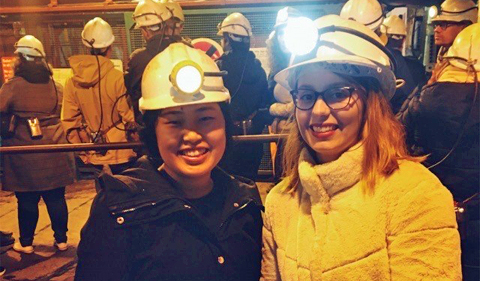
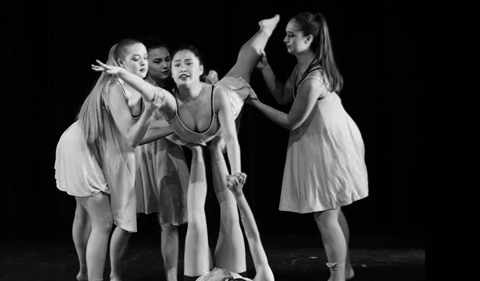
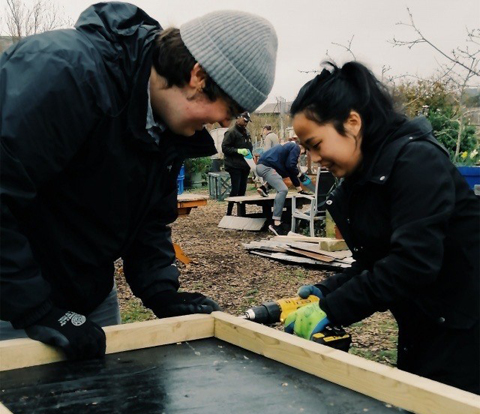
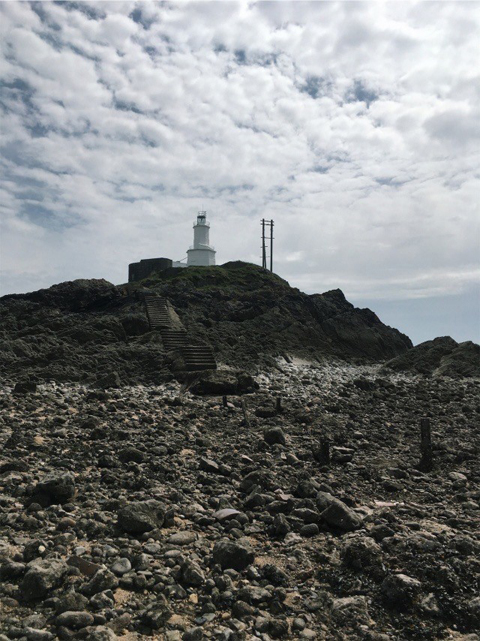



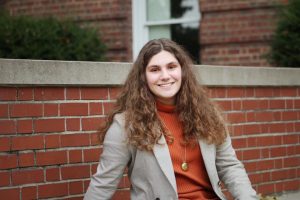













Comments